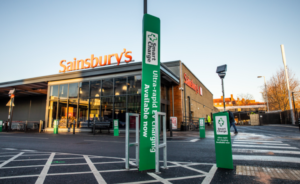‘Targeted support’ needed to achieve clean air goals
‘Mobility credits’ incentivising the use public transport or car rental clubs for short journeys should be used to support the introduction of Clean Air Zones in towns and cities, vehicle fleet operators have suggested.
The British Vehicle Rental and Leasing Association (BVRLA) has advocated the measure – which would allocate credits to use for occasional vehicle rental, car club usage or public transport — in its response to the government’s consultation on measures to support individuals and businesses affected by air quality plans.

Targeted measures to encourage road users to switch from some of the most polluting vehicles should be set out by government, transport organisations have claimed
Responding to the consultation, which was launched shortly after the Budget in November (see airqualitynews.com story), and closed this month, BVRLA called for a “blended” set of incentives and restrictions which ‘do not cripple the economy’ and encourage a long term switch to cleaner forms of transport.
Commenting on the proposal, BVRLA chief executive, Gerry Keaney, said: “Clean Air Zones are coming to many of our largest urban areas and you only have to look at some of the recent local adverse reaction from the taxi community in Leeds to see they have the potential to significantly impact local people and businesses.
“For many, their local Clean Air Zone will be the first tangible evidence of the government’s drive to improve air quality. It’s vital that their design and implementation encourages growth and enhances rather than impedes people’s ability to get around and transport goods. We need to see a consistent approach to signage, charging and restrictions to minimise confusion and avoid non-compliance.”
Clean Air Zone
Cities including Leeds, Southampton, Birmingham, Derby and Nottingham are developing proposals for clean air zones which could ultimately limit the use of some of the most polluting vehicles in areas severely impacted by air pollution.
According to BVRLA, the use of mobility credits would provide a suitable incentive for a reduction in the number of polluting private cars driven on UK roads.
Mr Keaney added: “We are calling for a carefully managed transition that encourages people and businesses to use more sustainable vehicles and modes of transport. Crucially, it must be done in a way that encourages people and businesses to make long term changes in their behaviour. Hence our strong advocacy of our Mobility Credits initiative which will help remove thousands of the most polluting vehicles from the roads.”
Measures touted in the consultation include a vehicle scrappage scheme for older diesel cars — which some environmental campaigners have long held as a key measure required to encourage a substantial reduction in air pollution emissions from the UK’s roads.
This measure has been backed by the Urban Transport Group — the body representing transport authorities in major urban centres including Greater Manchester, London, Liverpool and Sheffield.
Scrappage scheme
In its response, the organisation claimed that a scrappage scheme would send a ‘strong signal’ to consumers to encourage uptake in ultra low emission vehicles.

Government is looking at measures including vehicle scrappage and retrofits as part of efforts to tackle air pollution
The group stated: “It is worth noting that the most diesel vehicles will be those that are already on the road. National action on VED for all diesel vehicles alongside a diesel scrappage scheme would send a strong signal to consumers as well as accelerating the transition towards low emission vehicles.”
Additionally, the organisation claimed that additional funding would be needed to support bus and taxi operators to switch to the lowest emission vehicles.
The response noted: “In terms of bus fleets, small operators in particular may struggle with finding the capital investment necessary for new vehicles without targeted support. The taxi sector can also in many cities be made up to a greater or lesser extent of poorly capitalised and low return businesses based on various formats or self-employment, it is unlikely that these businesses will be able to fund a switch from second or third hand taxis to a new ULEV without targeted support.”
The government is expected to provide a full response to the consultation within the coming months.
Related Links
British Vehicle Rental and Leasing Association
Urban Transport Group
















